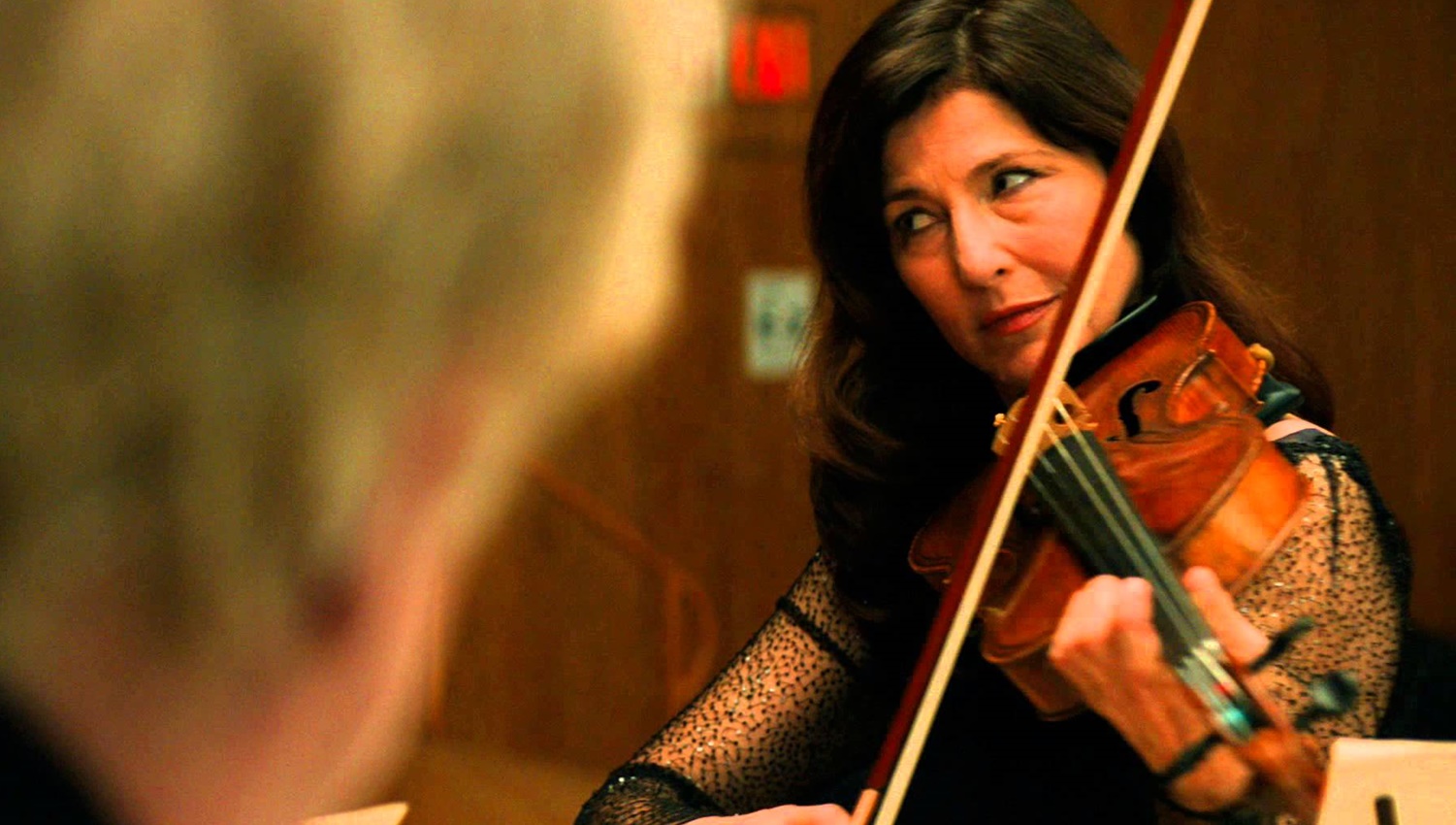
A Late Quartet
Dustin Chase
When a film starring three prominent Oscar winners/nominees isn’t getting any buzz in the 2012 Oscar race, you wonder about the sum of its parts. A Late Quartet is one of two films this Oscar season with “quartet” in the title, which is a little confusing. However, this one, directed by first timer Yaron Zilberman, is about a string quartet that functions more like a grown family with everyone struggling to keep the group together while leading their own lives. The complexity of the screenplay by Seth Grossman really starts to build after the first thirty minutes of the film and steps out of the calm, leading into something very dramatic and emotional, which surprised me.
The elder of the group, Peter Mitchell (Walken), and obsessing perfectionist Daniel Lerner started the quartet called The Fugue with married couple Juliette (Keener) and Robert (Hoffman). After performing together for decades, the group is now faced with losing Peter who is in the early stages of Parkinson’s disease and wants to retire. At the mention of Peter’s departure, the group begins to crumble and for the first time, members begin to express their own feelings about each other and the group as a whole. “Becoming part of the group is about becoming one,” Robert says in a taped interview from their earlier days.
Allows Keener to return to the type of powerful performance I have missed from her recently.
The beginning was very slow for me because I didn’t see where the story was headed or have any notion that it would take any kind of hidden turns. In the second act of the film when the group begins to fall apart, it could be argued that it plays like a soap opera; but for this film, that is exactly where it needs to go to offer these characters the chance to stretch their limits. A Late Quartet really does work well as a consolidated ensemble, and the four main actors are all given character arcs in their development. It is also quite interesting and a little scary what talent can do to people struggling to lead normal lives.
There is a fiery scene between Keener (Being John Malkovich, Capote) and her daughter (played by Imogen Poots) that allows Keener to return to the type of powerful performance I have missed from her recently. Throughout the film, Keener is strong and she really stood out to me. Just this year, Walken shows a polar-opposite performance range if you compare it to his role in Seven Psychopaths (which was excellent); here, he is without his usual humor and gimmicks. The film weaves around these characters in a way that really allow the actors to shine and do some incredible work in character exploration.
Final Thought
All the actors do some of their best work in this character-driven ensemble.
